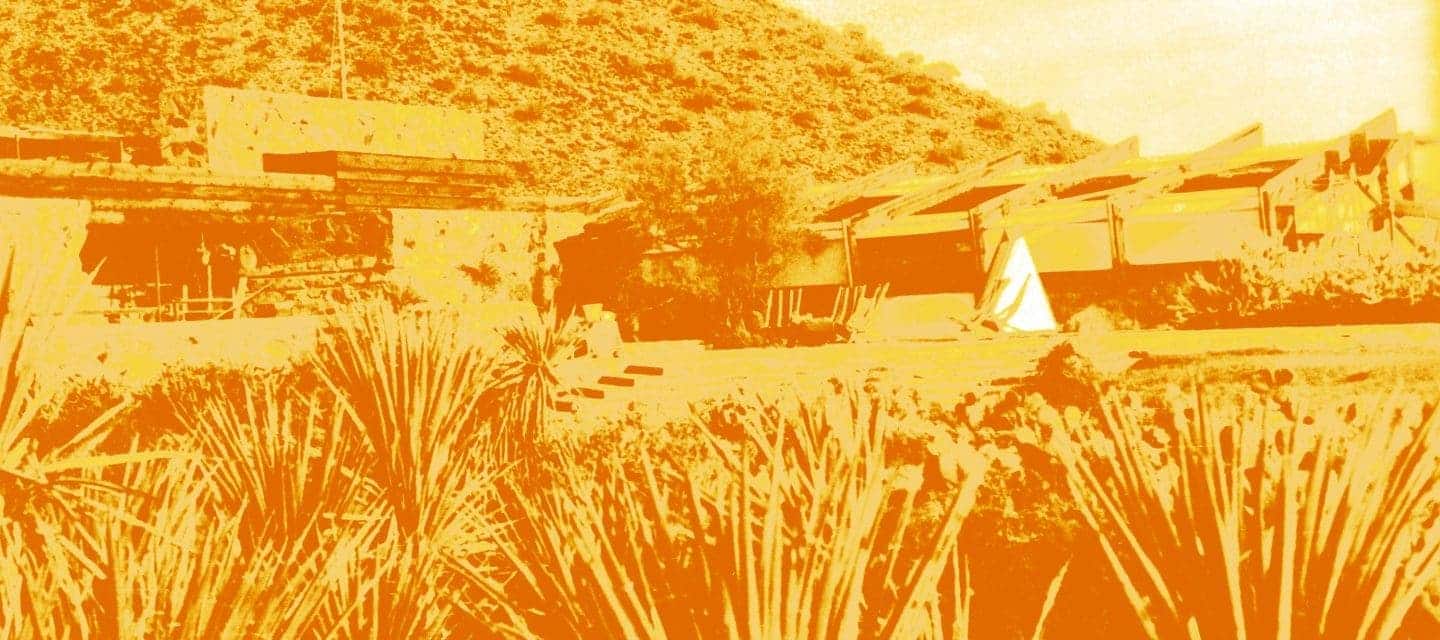
Frank Lloyd Wright on Air Conditioning
Frank Lloyd Wright | Jun 21, 2017
The following excerpt detailing Frank Lloyd Wright’s thoughts on air conditioning was taken from Wright’s 1954 publication “The Natural House.”
AIR CONDITIONING?
To me air conditioning is a dangerous circumstance. The extreme changes in temperature that tear down a building also tear down the human body. Building is difficult in a temperate zone, where you have extreme heat and extreme cold. For instance—the boards in the ceiling over my bedroom at Taliesin West, overheated during the day, begin to pull and crack and miniature explosions occur at about three o’clock in the cool of the morning. Owing to changes of temperature nothing in construction is ever completely still.
The human body, although more flexible, is framed and constructed upon much the same principles as a building. I can sit in my shirt sleeves at eighty degrees, or seventy-five, and be cool; then go outside to 118 degrees, take a guarded breath or two around and soon get accustomed to the change. The human body is able to continually adjust itself—to and fro. But if you carry these contrasts too far too often, when you are cooled the heat becomes more unendurable; it becomes hotter and hotter outside as you get cooler and cooler inside. Finally, Nature will give up. She will just say for you, “Well, what’s the use?” Even Nature can’t please everybody all the time.
So air conditioning has to be done with a good deal of intelligent care. The less the degree of temperature difference you live in, the better for your constitutional welfare. If one may have air and feel the current of air moving in one’s face and hands and feet one can take almost any degree of heat. But as for myself if I feel close and hot, I cannot well take it. Neither can anybody else, I believe.
So, in a very hot climate, the way to deal with air conditioning best would be to have a thorough protection overhead and the rest of the building as open to the breezes as it possibly can be made. On the desert slopes at Taliesin West there is always a breeze. But when we first went there, and spent a summer in town, I had to wrap myself in wet sheets and get to sleep. Being a man from the North, I was unaccustomed to such heat as came from living in a bake-oven. But if I lived there all year round—and could get air by breezes—I would soon get accustomed to it.
Another way of dealing with air conditioning in a humid, hot climate is the “fireplace” as I devised it for a house in tropical Acapulco, Mexico. In this “fireplace” the air came down the flue instead of going out, and the hearth was a pool of cool water as artificial rain poured down the chimney and the pool was cooled by one of the devices designed for air conditioning. You could sit around the “fireplace” and be especially cool but the rooms were each cooled. The chimney now did not stick up much above the roof—it was just rounded up to keep the water from running in—just a low little exuberance on the roof.
Even in cold climates air conditioning has now caught on because the aim now is to maintain the degree of humidity for comfort within, no matter what is going on outside. I do not much believe in that. I think it far better to go with the natural climate than try to fix a special artificial climate of your own. Climate means something to man. It means something in relation to one’s life in it. Nature makes the body flexible and so the life of the individual invariably becomes adapted to environment and circumstance.


